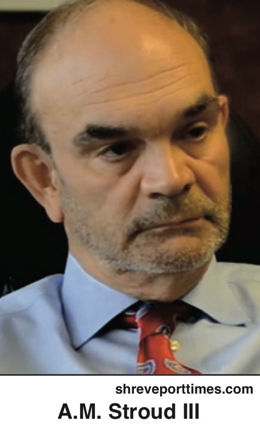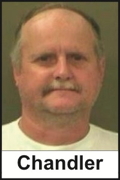Rascals case in brief
In the beginning, in 1989, more than 90 children at the Little Rascals Day Care Center in Edenton, North Carolina, accused a total of 20 adults with 429 instances of sexual abuse over a three-year period. It may have all begun with one parent’s complaint about punishment given her child.
Among the alleged perpetrators: the sheriff and mayor. But prosecutors would charge only Robin Byrum, Darlene Harris, Elizabeth “Betsy” Kelly, Robert “Bob” Kelly, Willard Scott Privott, Shelley Stone and Dawn Wilson – the Edenton 7.
Along with sodomy and beatings, allegations included a baby killed with a handgun, a child being hung upside down from a tree and being set on fire and countless other fantastic incidents involving spaceships, hot air balloons, pirate ships and trained sharks.
By the time prosecutors dropped the last charges in 1997, Little Rascals had become North Carolina’s longest and most costly criminal trial. Prosecutors kept defendants jailed in hopes at least one would turn against their supposed co-conspirators. Remarkably, none did. Another shameful record: Five defendants had to wait longer to face their accusers in court than anyone else in North Carolina history.
Between 1991 and 1997, Ofra Bikel produced three extraordinary episodes on the Little Rascals case for the PBS series “Frontline.” Although “Innocence Lost” did not deter prosecutors, it exposed their tactics and fostered nationwide skepticism and dismay.
With each passing year, the absurdity of the Little Rascals charges has become more obvious. But no admission of error has ever come from prosecutors, police, interviewers or parents. This site is devoted to the issues raised by this case.
On Facebook
Click for earlier Facebook posts archived on this site
Click to go to
Today’s random selection from the Little Rascals Day Care archives….
Click for earlier Facebook posts archived on this site
Click to go to
Today’s random selection from the Little Rascals Day Care archives….
Oh, those spoilsports, voicing ‘disbelief and skepticism’
April 3, 2013
In my fruitless attempt to extract a retraction from the journal Child Abuse & Neglect, I quoted only the abstract of “Sexual Abuse of Children in Day Care Centers” by Susan J. Kelley, Renee Brant and Jill Waterman.
But because the 1993 article continues to be cited in the literature – most recently in the International Journal of Law and Psychiatry – it deserves a more detailed review.
Most offensive to me is the authors’ use of ostensibly sophisticated statistics. For example: “The mean number of different types of sexual acts per child ranged from 5.3 sexual acts per child in (Kathleen Coulborn) Faller’s (1988) sample to 6.6 different types of sexual abuse per child in Kelley’s (1989) study.”
Can’t you just picture the authors’ computers straining under the weight of all their meticulous research? In reality, of course, the “mean number of different types of sexual acts per child” was… zero.
And the anecdotes! What ever were Kelley, Brant and Waterman thinking as their fingers typed such unfounded claims as these:
- “Foreign objects used to penetrate children in day care center cases have included such items and pencils, needles, knives, scissors and crucifixes.”
- “Allegations of pornographic photographs and videos being taken of children in day care center cases sometimes surface…. Unfortunately, in very few cases have law enforcement officials been able to locate the pornography.”
- “Children who have been ritualistically abused describe participation in group ceremonies, use of chants and songs, adults dressed in costumes and masks, threats with supernatural powers….the sacrifice of animals, the ingestion of blood, feces and urine, and murders.”
Despite the authors’ unbridled certitude, they can’t help complaining that “One of the first complications in the evaluation of ritualistic abuse cases is the frequent disbelief and skepticism on the part of the professionals secondary to the bizarre and extreme nature of the allegations.”
“Complications,” indeed.
McMartin interviewers showed way for Little Rascals
April 25, 2012
“Many questions were repeated (by interviewers in the McMartin Preschool case) even when the children had previously given unambiguous answers.
“For example, after a child responded that he/she did not remember any pictures of naked bodies, the interviewer repeated the question saying, ‘Can’t remember that part?’
“Even after the child again responded ‘no,’ the interviewer persisted, saying ‘Why don’t you think about that for awhile…. Your memory might come back to you.’ ”
– From “Tell Me What Happened: Structured Investigative Interviews
of Child Victims and Witnesses” by Michael E. Lamb, et al. (2008)
There is every reason to believe this approach typified interviews in the Little Rascals case, but of course prosecutors ensured almost no record of those interviews survived.
Rare words of prosecutorial remorse
 July 5, 2015
July 5, 2015
“In March, A. M. Stroud III, lead prosecutor at trial, wrote a remorseful article in The Shreveport Times, declaring, ‘Glenn Ford was an innocent man,’ taking responsibility for a rush to judgment and arguing for the abolition of the death penalty.
“ ‘I apologize to Glenn Ford for all the misery I have caused him and his family,’ Mr. Stroud wrote. ‘I apologize to the family of (the murder victim) for giving them the false hope of some closure. I apologize to the members of the jury for not having all of the story that should have been disclosed to them. I apologize to the court in not having been more diligent in my duty to ensure that proper disclosures of any exculpatory evidence had been provided to the defense.’
“He concluded: ‘I end with the hope that providence will have more mercy for me than I showed Glenn Ford. But I am also sobered by the realization that I certainly am not deserving of it.’ ”
– From “Glenn Ford, Spared Death Row, Dies at 65” by Bruce Weber in the New York Times (July 2)
By the time Mr. Ford was exonerated and released in 2014, he had served 29 years in Louisiana’s Angola prison. His freedom was short-lived: In less than 16 months he would be dead from lung cancer.
Prosecutor Stroud deserves credit for his humble and agonized apology, however late. His words could just as truthfully have come from the mouths of H.P. Williams, Bill Hart and Nancy Lamb – but of course they haven’t.
Oh, those ‘anxious parents, well-meaning child advocates’
 Oct. 10, 2012
Oct. 10, 2012
“This case arose during the height of the Child Sexual Abuse Hysteria of the 1980s and 1990s. The McMartin Preschool case, perhaps the most famous such case, was being tried in California at the same time this case was being tried in North Carolina. The prosecution team in this case was led by two members of the Attorney General’s staff who were to prosecute Robert Kelly four years later in the Little Rascals Day Care case.
“The state’s theory was that Junior Chandler, a bus driver for a county day care, would drive off his route to a parking area next to the French Broad River, strip the clothes off the toddlers, troop the naked children down to the river, put them on a rowboat, proceed to insert various objects into their anuses and vaginas, bring them back to the bus, put their clothes back on and deliver them home.
“This theory was the culmination of an investigation that began when one of the children came home one day and announced to her mother ‘we’ve been f***ing.’ Prior to that, there had been no indication of any problems with the children, the day care or Junior. However, fueled by the concern of anxious parents and well-meaning child advocates, this comment morphed into bizarre allegations of widespread sadistic abuse at the hands of several adults, including Junior….”
“Junior Chandler is serving his 26th year in prison, based largely on incredible claims from preschoolers, as elaborated upon and vouched for by six prosecution witnesses. Many defendants in this state have been awarded new trials for far less damaging testimony. Most of the victims of the Child Sexual Abuse Hysteria from around the country, Virginia McMartin, Kelly Michaels, Dale Akiki, Bob Kelly, the Amiraults, etc., have regained their freedom…. Junior Chandler deserves the same relief.”
– From Junior Chandler’s amended petition for writ of certiorari, denied last week by the North Carolina Supreme Court











0 CommentsComment on Facebook